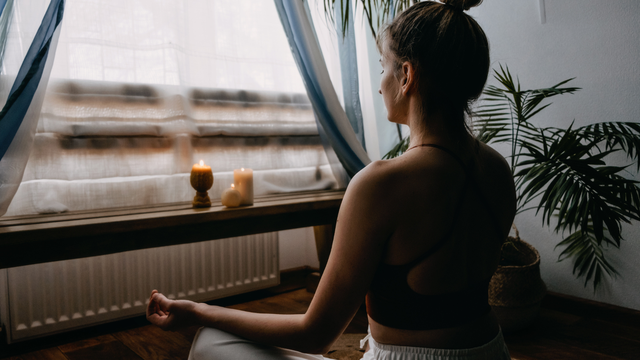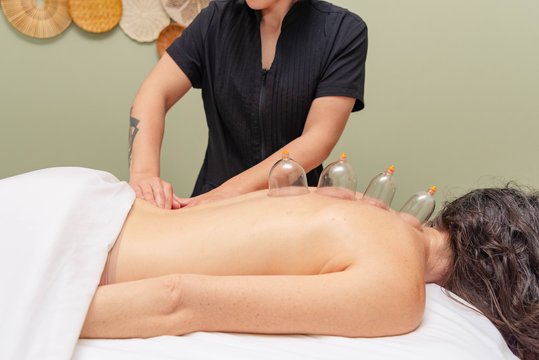Are You Suffering from Tech Neck?

Technology has become increasingly present in our daily lives. Most people spend their work days hunched over a computer screen, only to go home and hunch over their phone or tablet screen. But if your days are dominated by time glued to a screen you might be experiencing a painful side effect: tech neck.
What is tech neck?
“Tech neck” is a modern nickname for an age-old problem: neck pain caused by repetitive strain to the muscles and delicate tissues of the neck. Typically, this strain is a result of looking down at a device screen, hence the name.
In 2020, adults in the US spent an average of nearly eight hours per day staring at screens.
The average adult’s head weighs between 10 and 12 pounds when upright, but tilting your head to look down at your screen puts about 50 pounds of pressure on your neck. The human neck is supported by delicate bony structures, tendons, ligaments, and muscles that aren’t made to bear that type of load for prolonged periods, so those tissues become exhausted, causing pain.
Tech neck can lead to headaches, stiff necks, neck spasms, reduced mobility, jaw pain and pain between your shoulder blades. The strain of looking down for prolonged periods can also put pressure on the arteries, veins, and muscles that travel from your neck to your hand, which can stop the circulation in your hand and lead to numbness and tingling in your arm and hand. Extreme cases can even lead to inflammation, the formation of scar tissue, and even chronic injuries to the discs in your spine.
Because tech neck can have so many ramifications, it’s important to take steps to prevent it.
Tips to treat/prevent tech neck
Elevate your screen
If you work on a laptop, try putting it on a stand so that it’s naturally at eye level. When you’re looking at your phone or tablet, try holding it in front of your face so that you don’t have to hunch over to see the screen.
Recline your seat
Sitting up straight for prolonged periods of time actually puts extra strain on your spine and neck as your muscles overwork to keep you upright, despite popular belief that you should sit with perfect posture. Instead, opt for a chair that’s reclined 25 to 20 degrees with good lumbar support and that allows your head to lean back. This will actually prevent slouching and relieve tension on your back and neck, and will put your head in a position that your neck is not strained if you fall asleep.
Get up and move around
Whether you’re working or relaxing with your device, take periodic breaks from looking down at your screen. Get up and walk around or try doing some stretches that target the back and neck. Also try adding exercise into your routine, building up the muscles in your neck, shoulders, and back can help to prevent strain and injury to your neck.
Limit screen time
You can’t help how much you have to look at a screen during work hours, but try finding other ways to spend some of your free time that don’t require you to hunch over a device. Also try to reduce the number of times you look down at your phone during the day- you don’t need to peek down at it every two minutes.
Adding regular massage therapy to your health regimen can also help reduce the problems associated with tech neck. At Mindful Touch Massage, we believe that relaxation and pain relief go hand-in-hand, and we always work with clients to craft massage sessions that are tailored to their individual needs. If you’re experiencing neck pain, we offer a variety of massage therapy options that can target your sore neck muscles, including neuromuscular therapy and therapeutic pain relief massages. Book an appointment with us now to find relief.
Prioritizing Mental Health and Self-Care to Help Heal from Natural Disasters
Massage therapy can help with processing feelings of stress, anxiety, exhaustion, and sadness after experiencing a traumatic event like a natural disaster.
Read MoreWhy I Created Mindful Touch Massage & Wellness
Happy New Year, Friends! I hope the beginning of this New Year has started out good for all of you, and you are looking forward to good things in 2020.
Read MoreDeep-Pressure Massage Therapy
At Mindful Touch Massage & Spa, we pride ourselves on offering a range of specialized services to help our clients reach their optimal wellness and live pain-free lives, including firmer pressure during their massage therapy sessions, turning their massage into a deep-pressure massage.
Read More

